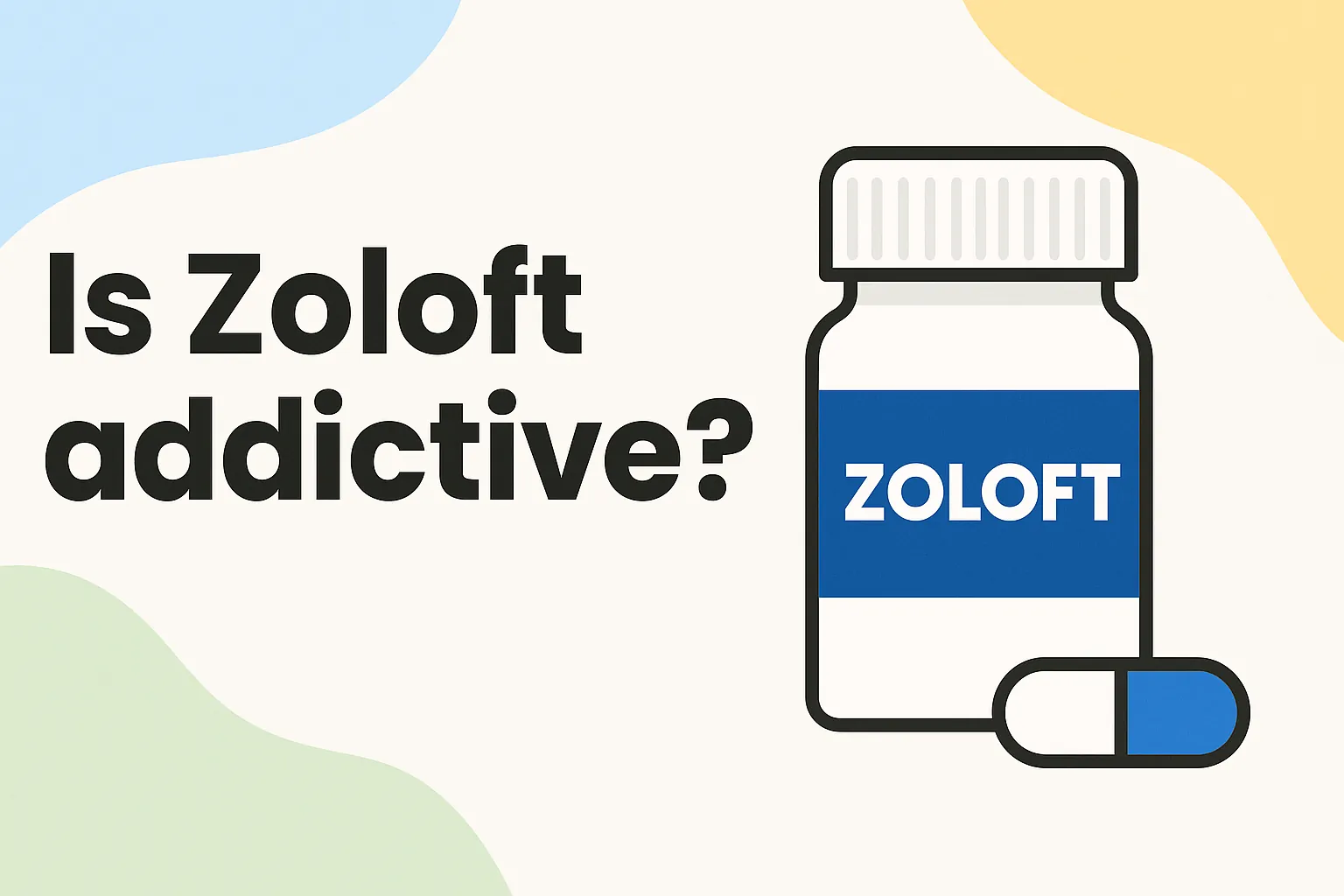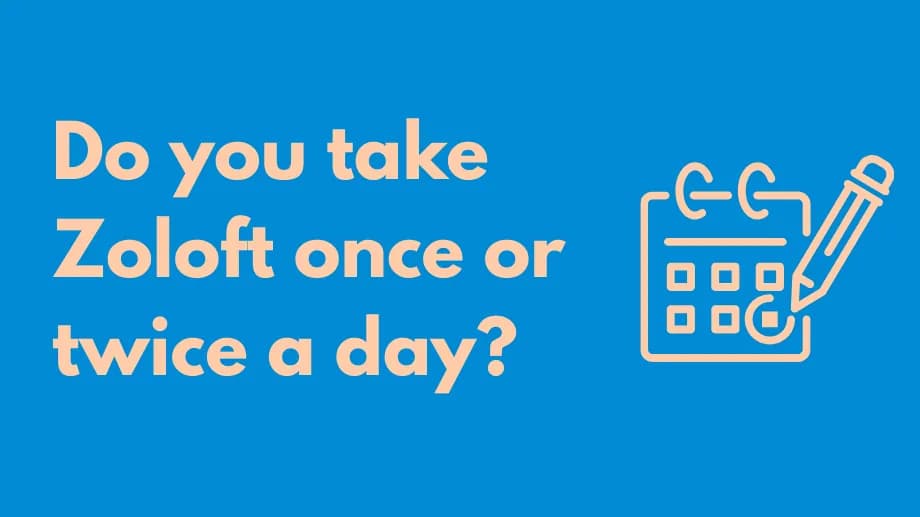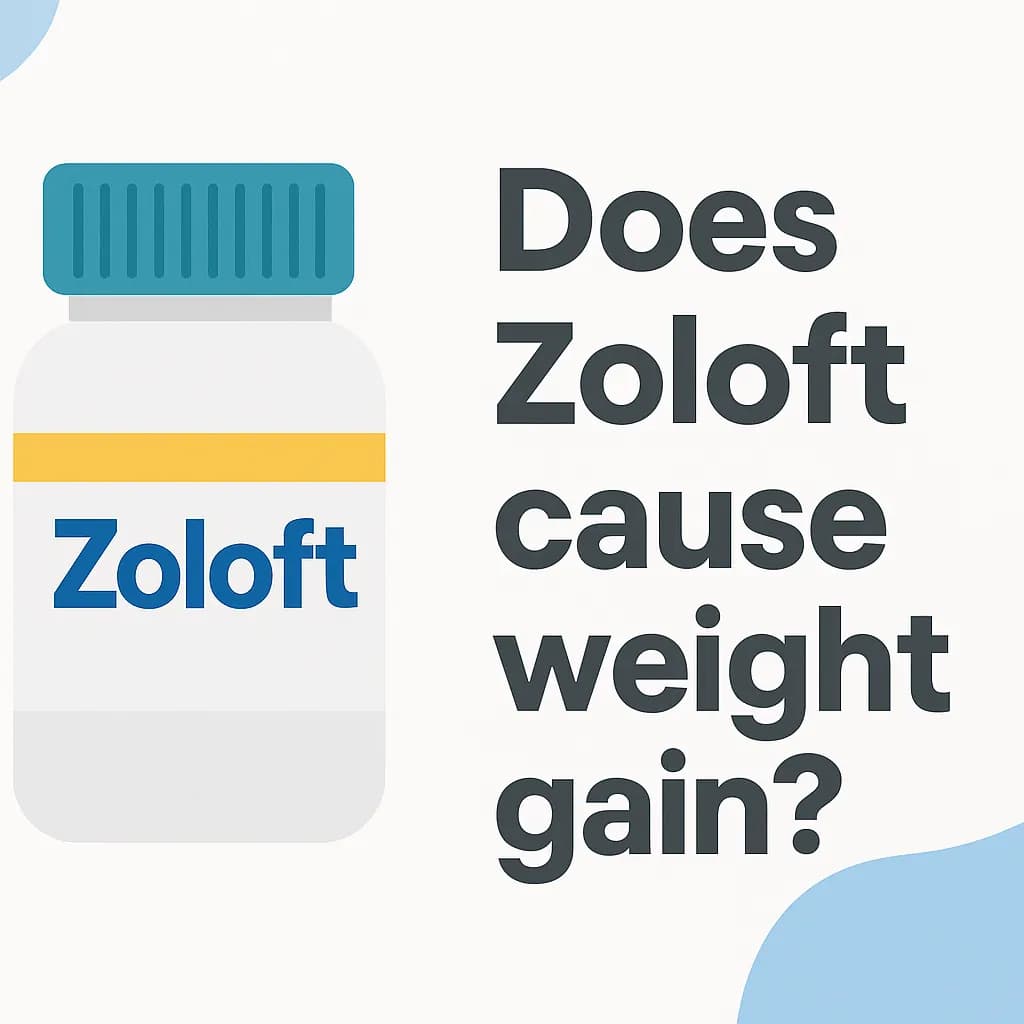Is Zoloft addictive?

Zoloft (sertraline) is an antidepressant medication that belongs to the selective serotonin reuptake inhibitor (SSRI) drug class. It works by increasing the amount of serotonin in your brain. Serotonin is a neurotransmitter in your brain that affects mood and behavior. Increasing levels of serotonin can help to improve symptoms of depression, anxiety, and other mental health conditions.
Zoloft is generally not thought to be addictive, but it’s important to use it as your prescriber tells you. It does not get you high and will not produce any kind of euphoric feeling so Zoloft abuse is rare.
However, when discussing the potential for Zoloft addiction, it is important to know the difference between addiction and physical dependence. Addiction typically refers to the negative behaviors related to substance abuse, while physical dependence implies the possibility of negative side effects when stopping a certain substance or prescription medication.
Although it is unlikely you can become addicted to Zoloft, taking it for even a short amount of time will likely result in physical and psychological dependence.
Psychological dependence occurs when your mental health relies on the medication to control your symptoms or improve your mental well-being. Physical dependence occurs when your body becomes used to the medication, and you can experience Zoloft withdrawal symptoms if you suddenly stop taking it. These symptoms can develop within 24 hours of stopping Zoloft and can last for up to 2 to 4 weeks. Also known as antidepressant discontinuation syndrome, symptoms can include:
- Nausea
- Dizziness
- Headaches
- Insomnia
- Fatigue
- Flu-like symptoms
- Vivid dreams
- Irritability
It is recommended to taper off Zoloft gradually under your healthcare provider’s supervision to minimize these effects.
If you have a history of substance abuse or have been in an addiction treatment program, you should talk with your healthcare provider before taking Zoloft.
How does Zoloft work?
The active ingredient in Zoloft is sertraline hydrochloride. It is a brand-name SSRI antidepressant that was approved by the U.S. Food and Drug Administration (FDA) in 1991. It works by blocking the reabsorption (reuptake) of serotonin in your brain and therefore increasing its activity. Serotonin is an important neurotransmitter that is thought to play a role in mood, sleep, and anxiety.
What is Zoloft used to treat?
- Major depressive disorder (MDD)
- Obsessive-compulsive disorder (OCD)
- Panic disorder (PD)
- Post-traumatic stress disorder (PTSD)
- Premenstrual dysphoric disorder (PMDD)
- Social anxiety disorder (SAD)
What are the side effects of Zoloft?
The most common side effects include:
- Nausea
- Diarrhea
- Trouble sleeping
- Dry mouth
- Indigestion
- Tiredness or drowsiness
Other less serious side effects may include:
- Irregular heartbeat
- Loss of appetite
- Changes in vision
- Tremor
- Sexual problems
- Sweating
Rare but serious side effects include:
Shop Medications
- Allergic reactions
- Worsening depression and suicidal thoughts
- Serotonin syndrome
- Increased risk of bleeding
- Glaucoma
- Abnormal heart rhythm
- Low sodium levels
In children and adolescents, other possible side effects include:
- Increased muscle movement or agitation
- Nose bleeds
- Urinary incontinence
- Aggression
- Slowed growth
- Weight gain or loss
These are not all of the possible side effects. Contact your healthcare provider for medical advice and read the Medication Guide with each refill. You can report adverse effects to the FDA at www.fda.gov/medwatch or call 1-800-FDA-1088.
Are there drug interactions with Zoloft?
Ask your provider about interactions, especially with:
- Other SSRIs (e.g., Celexa, Prozac)
- SNRIs (e.g., Cymbalta, Effexor)
- MAOIs
- Tricyclic antidepressants
- Triptans
- Opioids
- Tryptophan
- St. John’s Wort
- Amphetamines
- Lithium
- Buspirone
- NSAIDs and aspirin
- Anticoagulants
- Medications affecting heart rhythm (QT prolongation)
- Seizure medications
- Alcohol, marijuana, antihistamines, and other sedatives
- Antabuse (disulfiram) – avoid oral solution
Who should not take Zoloft?
- If taking or recently took an MAOI
- If taking Orap (pimozide)
- If allergic to sertraline or any inactive ingredient
- If taking disulfiram and using the oral solution
What does your healthcare provider need to know before you start Zoloft?
- Liver, heart, or kidney problems
- History of seizures
- Bipolar disorder or mania
- Low sodium levels
- History of stroke
- High blood pressure
- Bleeding problems
- If pregnant or planning to become pregnant
- If breastfeeding
What happens if you take Zoloft and don’t need it?
Taking Zoloft without having depression can reduce the volume of brain areas that control mood, memory, learning, and emotion. It can also increase your risk of serotonin syndrome. Symptoms may include:
- Restlessness or agitation
- Confusion
- Increased heart rate
- High blood pressure
- Irregular heartbeat
- Sweating
- Muscle stiffness
- Dilated pupils
- Loss of coordination or twitching
- Headache
- Diarrhea
- Chills
- Goosebumps
- Fever
In severe cases, serotonin syndrome can cause seizures or unconsciousness. Seek emergency medical attention if these symptoms occur.
Related Medications
- Prozac (fluoxetine)
- Paxil (paroxetine)
- Celexa (citalopram)
- Pristiq (desvenlafaxine)
- Effexor XR (venlafaxine ER)
- Lexapro (escitalopram)
Sources
- Zoloft (sertraline hydrochloride) tablets and oral solution. U.S. FDA. Accessed July 10, 2024.
- Sertraline (Rx). Medscape. Accessed July 10, 2024.
- Substance Use and Co-Occurring Mental Disorders. National Institute of Mental Health. Accessed July 10, 2024.
- Singh HK, Saadabadi A. Sertraline. StatPearls. Accessed July 10, 2024.
- Sertraline (Zoloft). National Alliance on Mental Illness. Accessed July 10, 2024.








